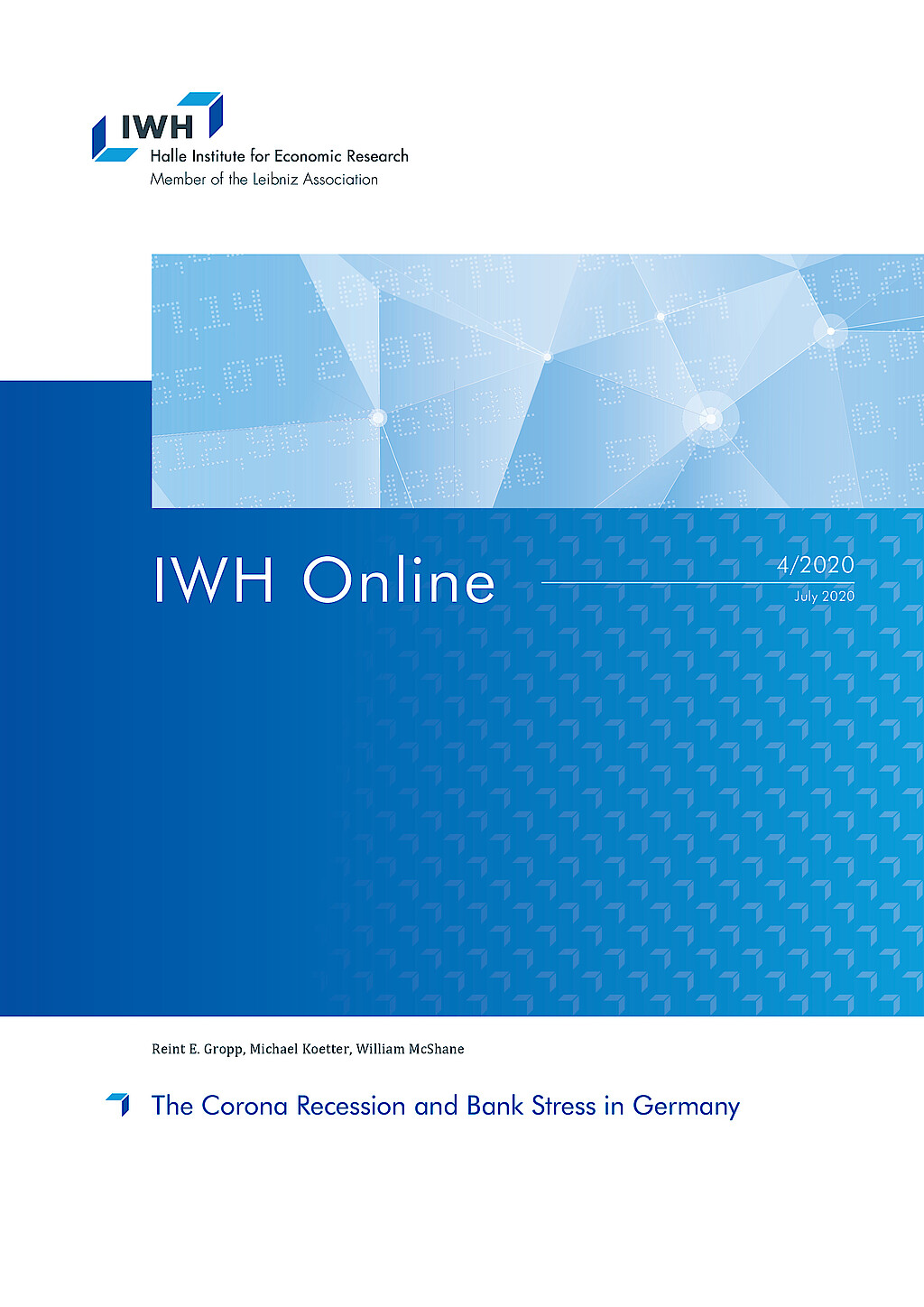
The Corona Recession and Bank Stress in Germany
We conduct stress tests for a large sample of German banks across different recoveries from the Corona recession. We find that, depending on how quickly the economy recovers, between 6% to 28% of banks could become distressed from defaulting corporate borrowers alone. Many of these banks are likely to require regulatory intervention or may even fail. Even in our most optimistic scenario, bank capital ratios decline by nearly 24%. The sum of total loans held by distressed banks could plausibly range from 127 to 624 billion Euros and it may take years before the full extent of this stress is observable. Hence, the current recession could result in an acute contraction in lending to the real economy, thereby worsening the current recession , decelerating the recovery, or perhaps even causing a “double dip” recession. Additionally, we show that the corporate portfolio of savings and cooperative banks is more than five times as exposed to small firms as that of commercial banks and Landesbanken. The preliminary evidence indicates small firms are particularly exposed to the current crisis, which implies that cooperative and savings banks are at especially high risk of becoming distressed. Given that the financial difficulties may seriously impair the recovery from the Covid-19 crisis, the pressure to bail out large parts of the banking system will be strong. Recent research suggests that the long run benefits of largely resisting these pressures may be high and could result in a more efficient economy.





